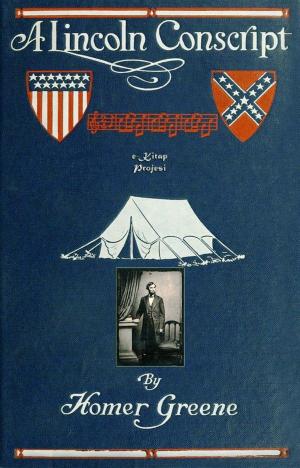| Author: | Jules Verne | ISBN: | 9786059496087 |
| Publisher: | eKitap Projesi | Publication: | February 14, 2017 |
| Imprint: | eKitap Projesi | Language: | English |
| Author: | Jules Verne |
| ISBN: | 9786059496087 |
| Publisher: | eKitap Projesi |
| Publication: | February 14, 2017 |
| Imprint: | eKitap Projesi |
| Language: | English |
On the 26th of July, 1864, under a strong gale from the northeast, a magnificent yacht was steaming at full speed through the waves of the North Channel. The flag of England fluttered at her yard-arm, while at the top of the mainmast floated a blue pennon, bearing the initials E. G., worked in gold and surmounted by a ducal coronet.
The yacht was called the Duncan, and belonged to Lord Glenarvan, one of the sixteen Scottish peers sitting in the House of Lords, and also a most distin-guished member of the "Royal Thames Yacht Club," so celebrated throughout the United Kingdom.
Lord Edward Glenarvan was on board with his young wife, Lady Helena, and one of his cousins, Major MacNabb. The Duncan, newly constructed, had just been making a trial voyage several miles beyond the Frith of Clyde, and was now on her re-turn to Glasgow. Already Arran Island was appearing on the horizon, when the look-out signaled an enormous fish that was sporting in the wake of the yacht.
The captain, John Mangles, at once informed Lord Glenarvan of the fact, who mounted on deck with Major MacNabb, and asked the captain what he thought of the animal.
"Indeed, your lordship," replied Captain Mangles, "I think it is a shark of large proportions."
"A shark in these regions!" exclaimed Glenarvan.
"Without doubt," replied the captain. "This fish belongs to a species of sharks that are found in all seas and latitudes. It is the 'balance-fish,' and, if I am not greatly mistaken, we shall have an encounter with one of these fellows.
If your lordship consents, and it pleases Lady Helena to witness such a novel chase, we will soon see what we have to deal with."
"What do you think, MacNabb?" said Lord Glenarvan to the major; "are you of a mind to try the adventure?"
"I am of whatever opinion pleases you," answered the major, calmly.
"Besides," continued Captain Mangles, "we cannot too soon exterminate these terrible monsters. Let us improve the opportunity, and, if your lordship pleases, it shall be an exciting scene as well as a good action."
** AUTHOR:**
Jules Gabriel Verne (1828 – 1905) was a French novelist, poet, and playwright best known for his adventure novels and his profound influence on the literary genre of science fiction.
Verne was born to bourgeois parents in the seaport of Nantes, where he was trained to follow in his father's footsteps as a lawyer, but quit the profession early in life to write for magazines and the stage. His collaboration with the publisher Pierre-Jules Hetzel led to the creation of the Voyages extraordinaires, a widely popular series of scrupulously researched adventure novels including Journey to the Center of the Earth (1864), Twenty Thousand Leagues Under the Sea (1870), and Around the World in Eighty Days (1873).
Verne is generally considered a major literary author in France and most of Europe, where he has had a wide influence on the literary avant-garde and on surrealism. His reputation is markedly different in Anglophone regions, where he has often been labeled a writer of genre fiction or children's books, largely because of the highly abridged and altered translations in which his novels are often reprinted.
On the 26th of July, 1864, under a strong gale from the northeast, a magnificent yacht was steaming at full speed through the waves of the North Channel. The flag of England fluttered at her yard-arm, while at the top of the mainmast floated a blue pennon, bearing the initials E. G., worked in gold and surmounted by a ducal coronet.
The yacht was called the Duncan, and belonged to Lord Glenarvan, one of the sixteen Scottish peers sitting in the House of Lords, and also a most distin-guished member of the "Royal Thames Yacht Club," so celebrated throughout the United Kingdom.
Lord Edward Glenarvan was on board with his young wife, Lady Helena, and one of his cousins, Major MacNabb. The Duncan, newly constructed, had just been making a trial voyage several miles beyond the Frith of Clyde, and was now on her re-turn to Glasgow. Already Arran Island was appearing on the horizon, when the look-out signaled an enormous fish that was sporting in the wake of the yacht.
The captain, John Mangles, at once informed Lord Glenarvan of the fact, who mounted on deck with Major MacNabb, and asked the captain what he thought of the animal.
"Indeed, your lordship," replied Captain Mangles, "I think it is a shark of large proportions."
"A shark in these regions!" exclaimed Glenarvan.
"Without doubt," replied the captain. "This fish belongs to a species of sharks that are found in all seas and latitudes. It is the 'balance-fish,' and, if I am not greatly mistaken, we shall have an encounter with one of these fellows.
If your lordship consents, and it pleases Lady Helena to witness such a novel chase, we will soon see what we have to deal with."
"What do you think, MacNabb?" said Lord Glenarvan to the major; "are you of a mind to try the adventure?"
"I am of whatever opinion pleases you," answered the major, calmly.
"Besides," continued Captain Mangles, "we cannot too soon exterminate these terrible monsters. Let us improve the opportunity, and, if your lordship pleases, it shall be an exciting scene as well as a good action."
** AUTHOR:**
Jules Gabriel Verne (1828 – 1905) was a French novelist, poet, and playwright best known for his adventure novels and his profound influence on the literary genre of science fiction.
Verne was born to bourgeois parents in the seaport of Nantes, where he was trained to follow in his father's footsteps as a lawyer, but quit the profession early in life to write for magazines and the stage. His collaboration with the publisher Pierre-Jules Hetzel led to the creation of the Voyages extraordinaires, a widely popular series of scrupulously researched adventure novels including Journey to the Center of the Earth (1864), Twenty Thousand Leagues Under the Sea (1870), and Around the World in Eighty Days (1873).
Verne is generally considered a major literary author in France and most of Europe, where he has had a wide influence on the literary avant-garde and on surrealism. His reputation is markedly different in Anglophone regions, where he has often been labeled a writer of genre fiction or children's books, largely because of the highly abridged and altered translations in which his novels are often reprinted.















